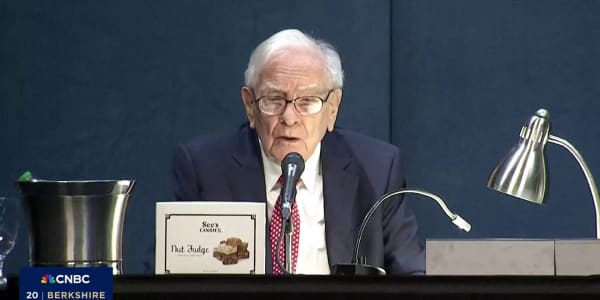
Bernard Tyson, chairman and CEO of managed-care firm Kaiser Permanente, told CNBC on Monday that presidential hopeful Sen. Elizabeth Warren's "Medicare for All" proposal could force some of his employees out of their jobs.
Some employees on the coverage side of the business would need to "find jobs elsewhere" if "there were no option for selling commercial insurance," Tyson said on CNBC's "Closing Bell" from the @ Work: People + Machines Summit in San Francisco.
Kaiser has 218,853 employees, representing technical, administrative and clerical workers, according to Kaiser's website. The company has 22,914 physicians.
Tyson added that there is a possibility that many new jobs will be created under the new health-care system.
Those on the health-care delivery side of Kaiser's business, for example, would likely fit into Warren's Medicare for All model, Tyson added. "There are a lot of details to be worked through that" Warren hasn't explained yet, he said.
Warren's plan calls for the elimination of private health insurance organizations, such as Tyson's business, and replacing it with a universal Medicare plan for all Americans. Proponents say the plan would help reduce administrative inefficiencies and costs in the U.S. health-care system.
Warren said Friday her Medicare for All proposal would cost "just under" the estimated cost of the current system, which is $52 trillion over a decade. It includes $20.5 trillion in new federal spending. Warren also said Friday she would double her wealth tax on billionaires — from 3% to 6% for household net worth over $1 billion — to help pay for it.
Tyson disagrees that Medicare for All would produce the lower costs that lawmakers such as Warren and Sen. Bernie Sanders claim, saying the system is "questionable at best."
"We don't think Medicare for All is the solution that is going to solve" affordability of care, he said. "We will spend the next 10 or 15 years, once again, focused on the coverage side of the health-care landscape. And I would argue that's not where the savings are going to come from."
For more on tech, transformation and the future of work, join CNBC at the @ Work: People + Machines Summit in San Francisco on Nov. 4. Leaders from Dropbox, SAS, McKinsey and more will teach us how to balance the needs of today with the possibilities of tomorrow, and the winning strategies to compete.






